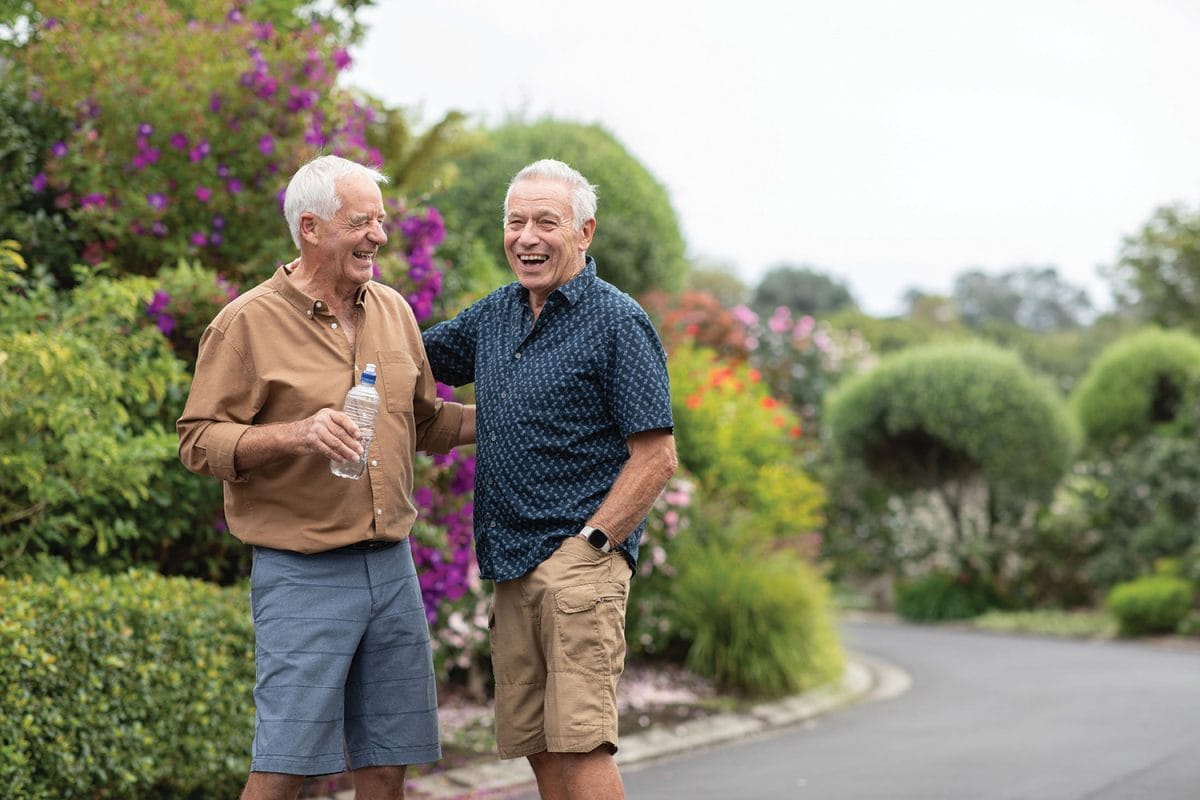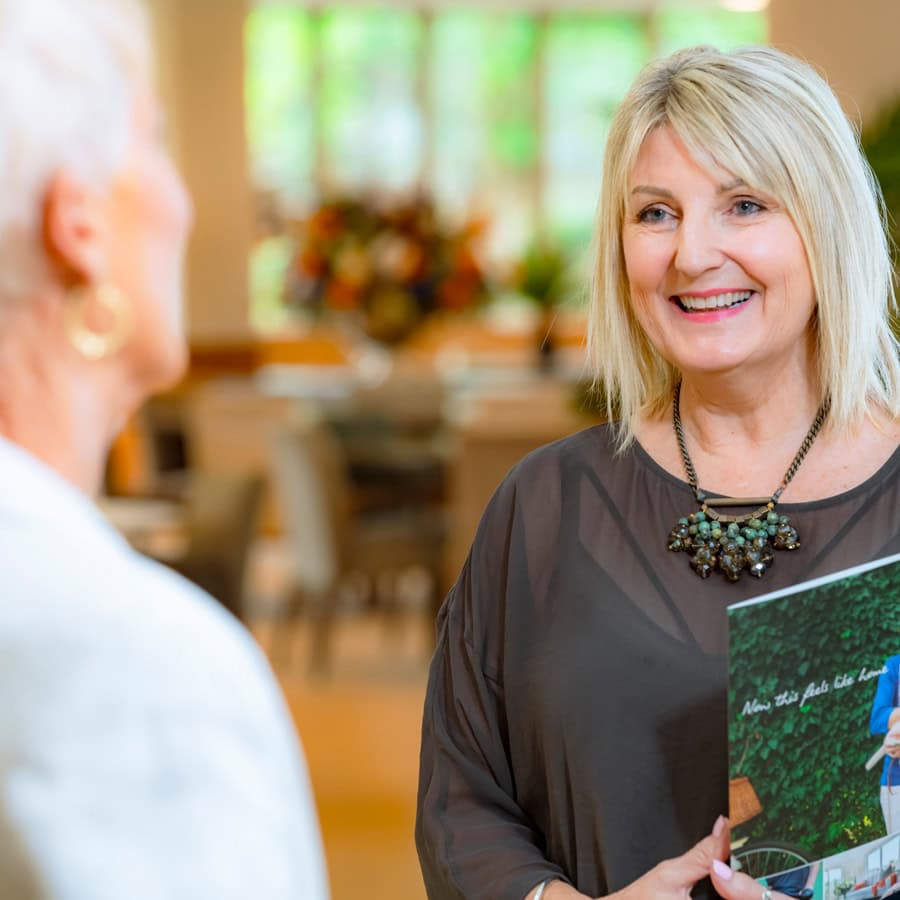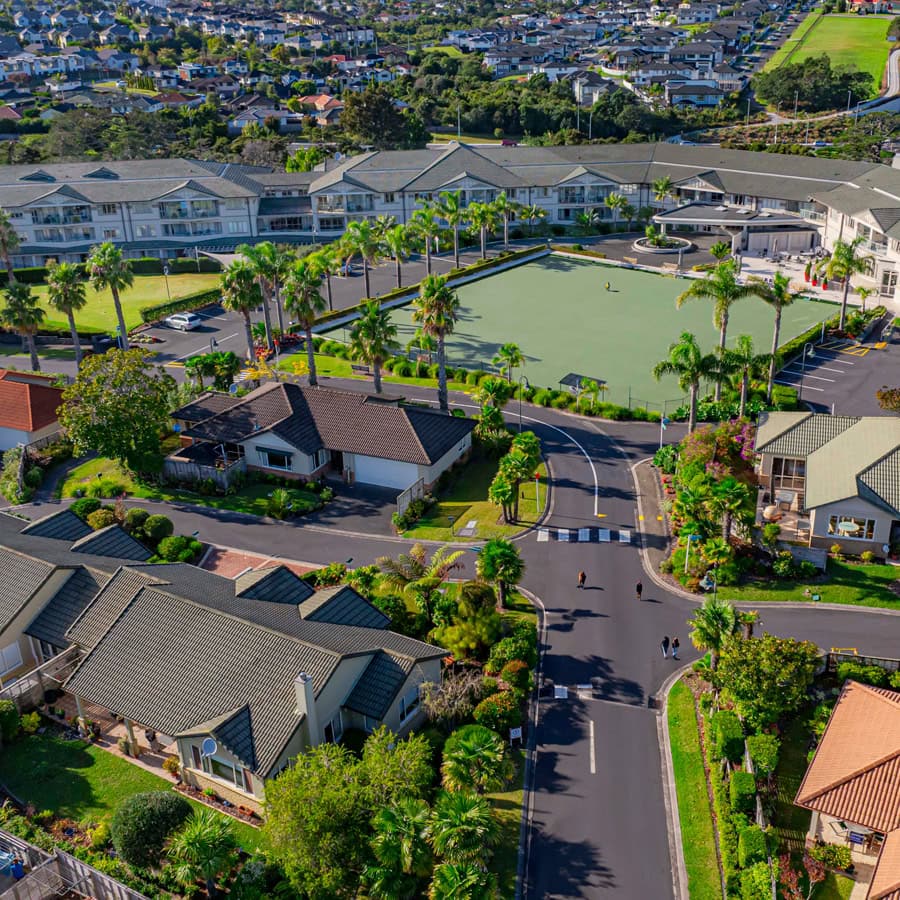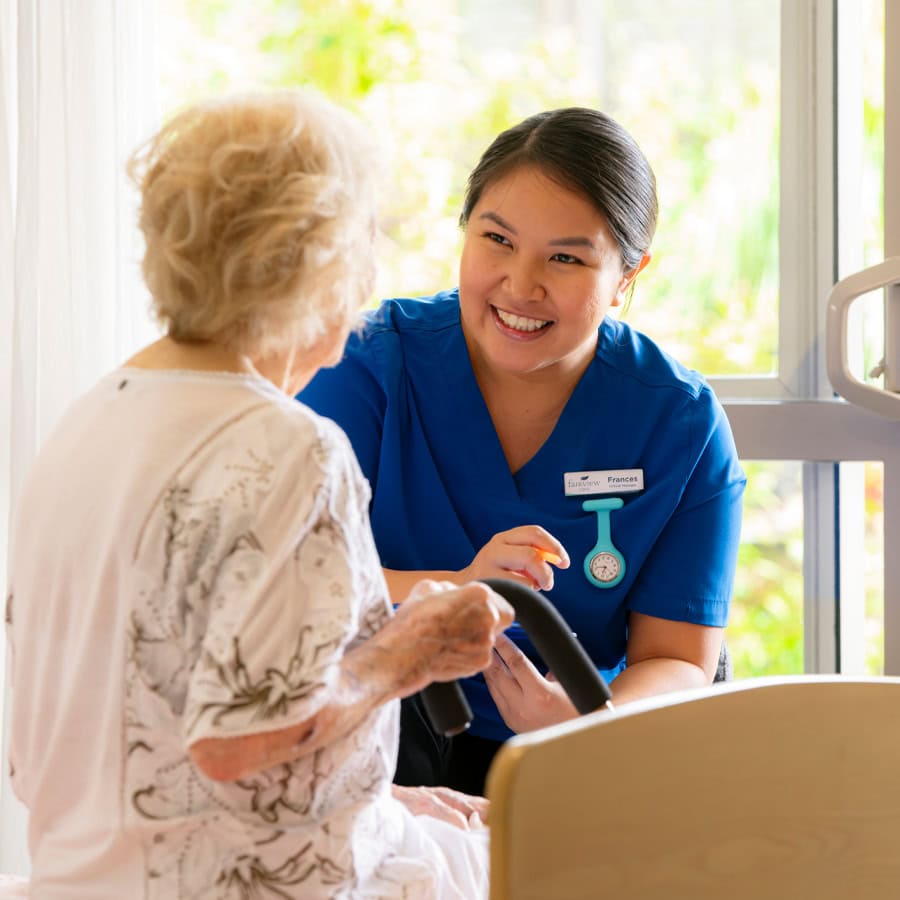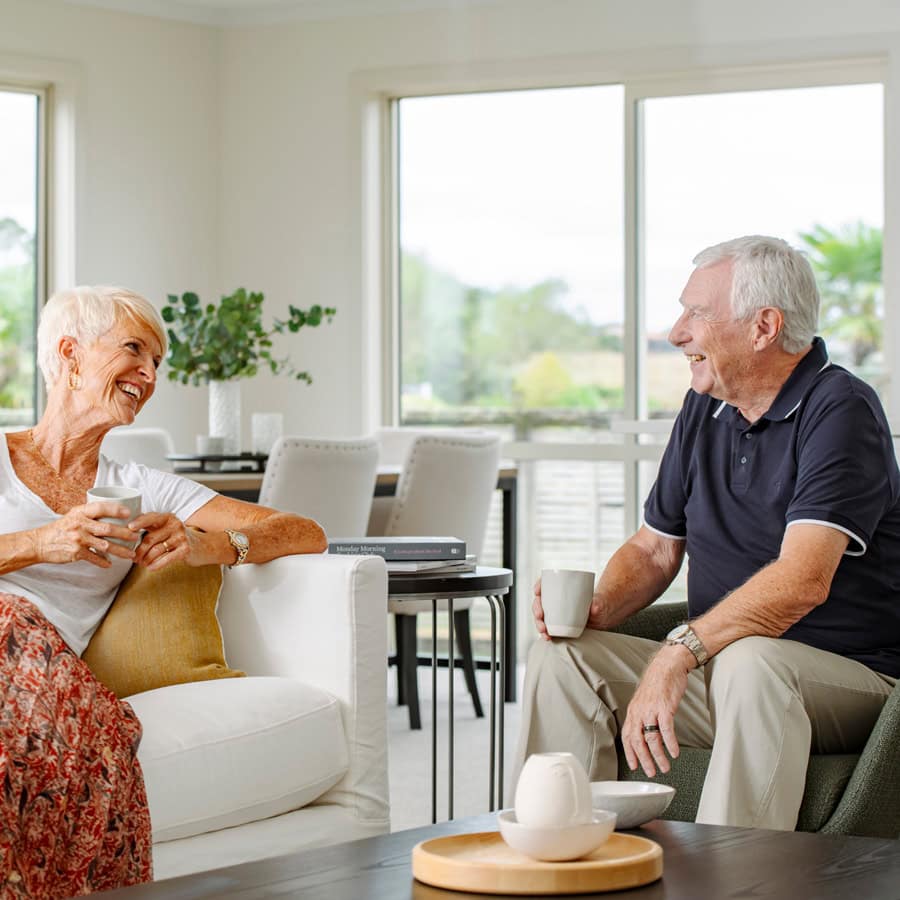We are social creatures, and our need for connection is wired from birth. Throughout our lives, we form relationships with family, friends, and co-workers. These social ties provide us with emotional support, a sense of belonging, and a source of companionship. In late adulthood, friendships play an even more important role.
Yet, as we age, our social circles can shrink. We retire from work, our kids move away, and loved ones pass on. This can lead to feelings of loneliness and isolation. More than that, it can cause depression, impaired cognitive functioning, and poor physical health.
Friendship is more than a ‘nice-to-have’, it’s vital for well-being
Strong social connections contribute to better physical and mental health, protecting against loneliness and depression. Study after study has found that health and psychological well-being improve for seniors when they:
- Like and care about other people
- Have fun together
- Feel comfortable confiding in each other
- Remind each other to stay healthy (Blieszner & Adams, 1992). To put it another way – when they have good friends!
Having a diverse and supportive friend network can act as a buffer against life’s challenges. But most significantly, strong social connections promote:
- Cognitive functioning
- Physical health
- Independence and a
- Sense of purpose
(Bruggencate, Luijkx, & Sturm, 2018; Huxhold, Miche, & Schüz, 2014; Santini et al., 2015; Béland et al., 2005). Interested in learning more about this research? We have a dedicated article on how friendship affects the well-being for seniors. You can find it here >> www.fairviewvillage.co.nz/how-friendship-affects-the-health-and-wellbeing-of-seniors
Ageing Together, Bonding Forever: How Retirement Villages Bolster Friendships
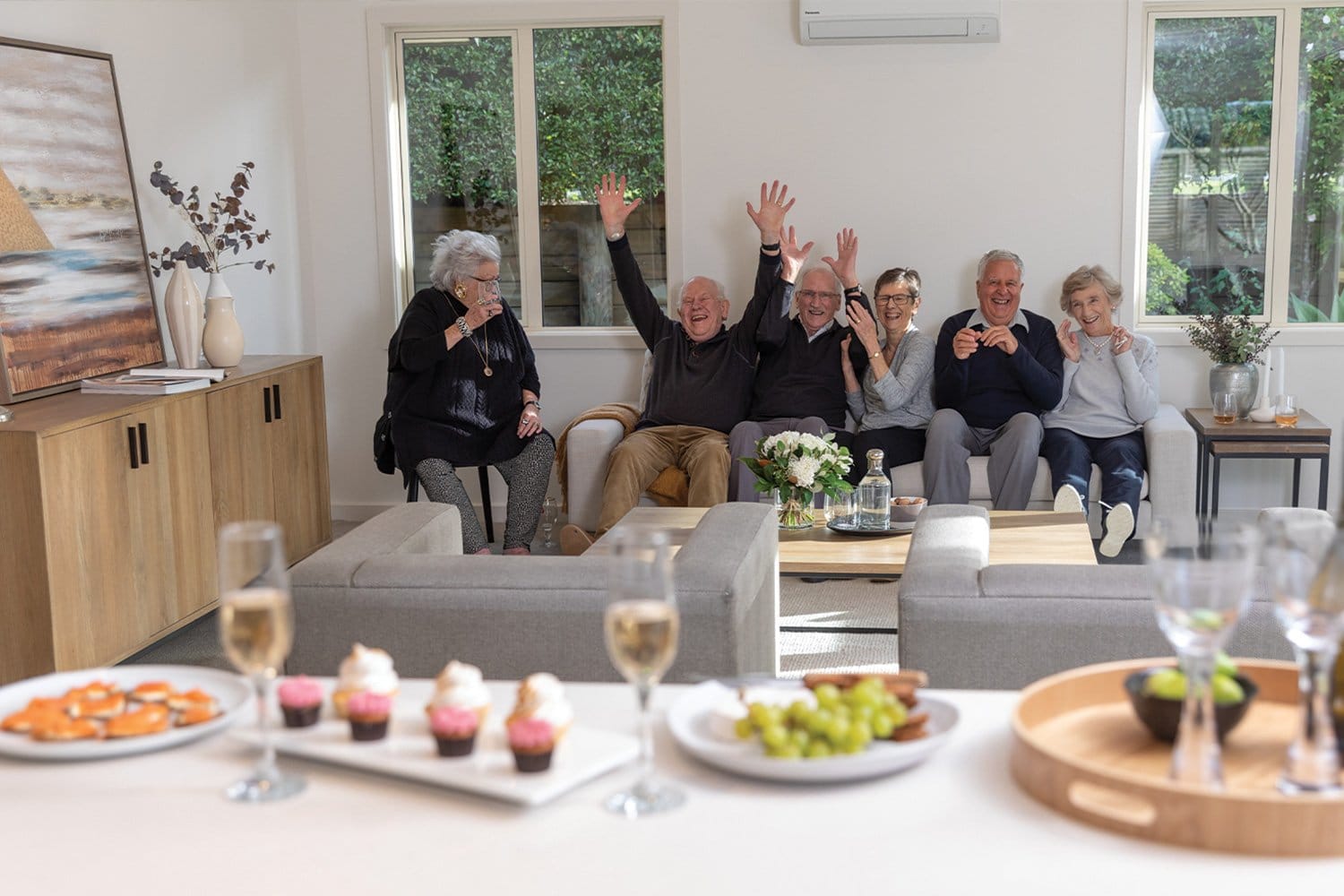
There’s no question that friendships in senior years are essential for wellbeing, so let’s talk about what that means for those living in villages like ours. We spoke to residents of Settlers and Fairview Lifestyle Villages about friendship. Here are the questions we asked, and here are their answers.
Are you more social here than you were before you moved in?
Here’s a brief summary of what our residents told us.
- The closer you are to each other, the easier it is to meet up. Plus there are lots of activities and hobbies to enjoy, so doing things together is a breeze.
- The cafe and restaurant is a great place to catch up with friends.
- Friends from way back are wonderful, but it’s hard to get together and you don’t see them as often as you would like.
- You get together more frequently here; sometimes two or three times a week, or as often as you like.
You can see your village friends as often as you like
“It’s amazing when you’re in suburbia you have friends, and we had friends from way way way back, but you don’t see those friends that often – well we don’t”.
Mary“I don’t think you see your friends like you used to. Like we used to see friends almost on a weekly basis, and then you get older and you get – oh no, we’ll just stay home or we just won’t do that.. So we’ve got really good friends outside the village that we may only see every couple of months. We know they are there, but we don’t see them. Here you’re seeing people two or three times a week”.
Bev“We were not particularly social because we had three kids, and were working for ourselves, but we’ve made a lot more friends here”.
John“If we walked out to go to Milford no one would talk to you, it’s very rare that someone would talk to you, but here, every other person stops to chat to you. It’s just so different. When I was coming down here there was someone driving down in their car wanting to chat – there is always someone about that you can talk to. It just seems so different”.
Barry
Having the onsite restaurant and cafe makes it easier to catch up
“Last night we looked at the menu, and said let’s eat at the lodge. We made a couple of phone calls, and other residents joined us. That would never happen in the past. We could call people to come with us to a restaurant, but it hardly ever happened before. It was all too hard”.
June
It’s very levelling
“You’re of the same mindset – so much in common – it’s very levelling. It doesn’t matter how much wealth anyone has, you’re all living in the same place. No one is going to put themselves above you. There’s no bragging to the Jones about doing better. What’s the point – your house is no different to ours!”
John
When you embrace it a whole new chapter in your life and new way of living opens up. It opens up other doors – one shuts and two opens, it’s certainly what we experienced here.
Do you have more friends here than you did before you moved in?
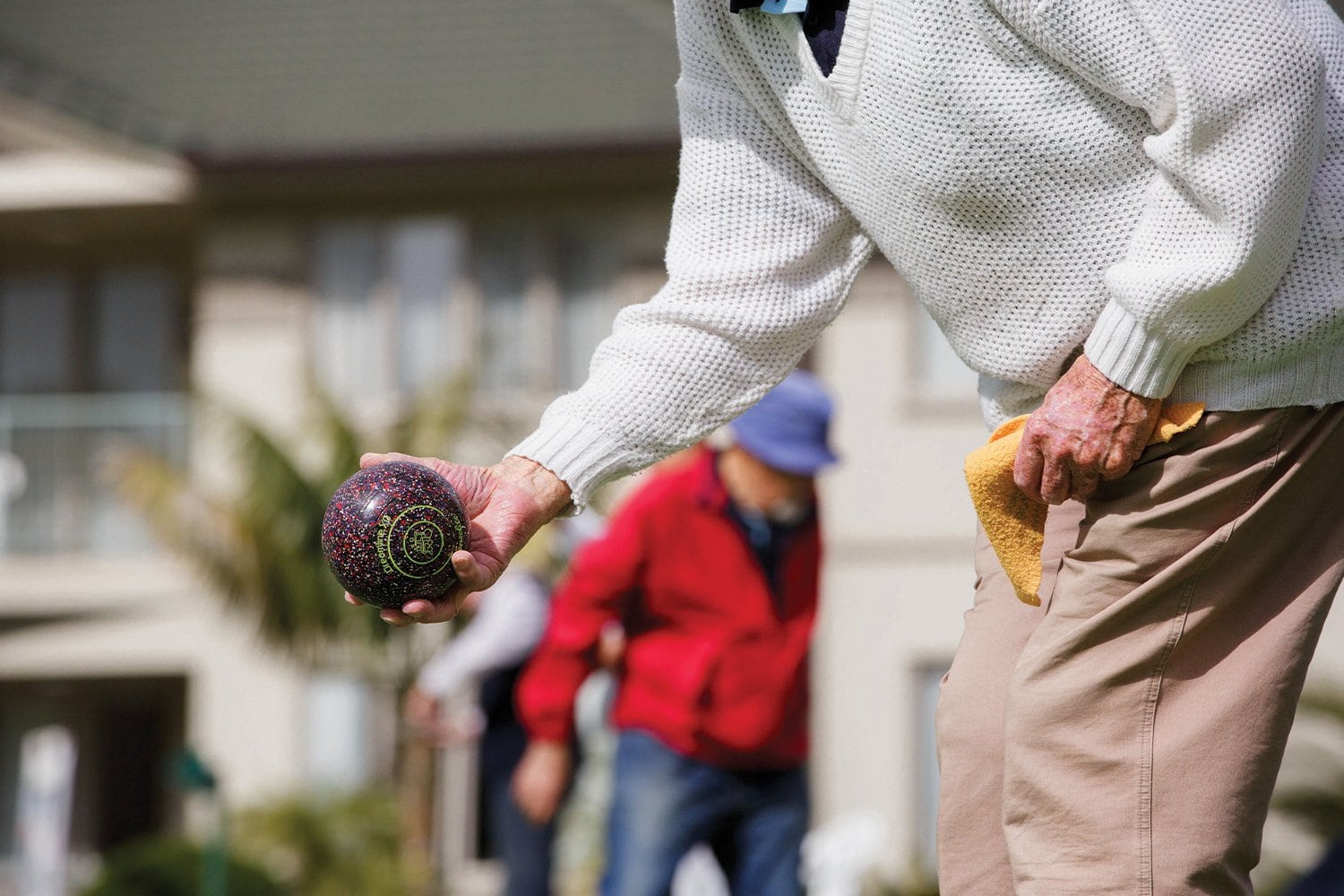
Every single person and couple we spoke to said ‘yes’.
“Straight away we made two very good friends, because they’d met us as we’d come and gone to things, and they played 500 card game so they said come and play, so now we play at each others house every weekend, and other friends have latched on and there’s kind of a little group now and we do things together as a big group now.”
Mary“I’ve made 140 friends in a year. Anyone in here that plays darts, indoor or outdoor bowls, petanque – we know everyone of them.”
Betty“We have about 350 friends now that we never had before.”
Jim
Do you feel better for living here?
There is a strong consensus among residents that living here makes them feel better. Their comments are below.
“We often say ‘What would we be doing if we weren’t here’. I don’t think we would be as happy. We wouldn’t have the friends we have here.”
Mary“I love the walking, I love the singing group, I love the theatre, I’m a bit of an avid reader and we’ve got a cracker library here”.
Betty
“Every day I have something that works towards my health”.
Bev“You’re here just to enjoy yourself. That’s the fun of it! There is so much to do if you want to do it, and if you don’t, just stay home.”
John
Your choice of community is actually more important than you think.
Social participation is seen to be a significant factor in maintaining overall health and well-being. Community engagement and social participation are associated with better health in old age and lower mortality rates. How significant is this association? Just as significant as well-established risk factors like smoking, alcohol consumption, exercising and eating well (Holt-Lunstad, Smith & Layton, 2010 [2]).
“Social relationships, or the relative lack thereof, constitute a major risk factor for health—rivalling the effect of well-established health risk factors such as cigarette smoking, blood pressure, blood lipids, obesity and physical activity” —House, Landis, and Umberson; Science 1988 [3]
148 independent studies found that social relationships significantly predict mortality. How big was the increase in survival odds? Incredibly, the research showed that social relationships increase survival odds by 50%.
srefPubMed], [WorldCat]
Interested in reading more about this research, please check out this article.www.fairviewvillage.co.nz/lifestyle-villages-play-a-vital-role-in-well-being-we-understand-this
Do men have a harder time making friends?
Here’s a brief summary of what our residents told us:
- In general, men have a harder time adjusting than women
- There is a ‘sisterhood connection’ among women, which makes them more comfortable reaching out to each other
- It’s important to ask about support networks for men, especially if they are on their own.
- Residents in our village understand that men may have a harder time adjusting to village life, so they go out of their way to offer support.
- At Settlers there’s also a purpose-built bloke’s shed with highly gifted craftsmen on hand to help with building, crafting, and tinkering.
- At Fairview, there is a Single Malt Whisky Club for men. Coming together to combat loneliness and isolation among older men through a shared love of whisky – what better way to bond?
“One of the men who moved in here at first was like a duck out of water. And you know what we did, we’ve given him a task to do at happy hour and he’s absolutely a different person. He’s seeing everybody and moves around, collecting all the tickets and making contact. If you notice that somebody is struggling a bit, most people are perceptive and very caring”.
Bev“So many blokes came in with their wives and said they didn’t want to come but are glad they are now”.
Jim“There is even a get-together for men, they bring us together for a meeting once a week. No one is isolated . . . You live longer if you aren’t”.
Bill
How do women connect in your village?
The bond of ‘sisterhood’ is an important and special one shared by many women throughout life. The bond transcends genetics, culture, and age and connects women in a way that cannot be explained. Such a bond continues in our village. Checking in with each other, taking strolls together, sharing coffee or a glass of wine, and pursuing common interests are all ways that women support one another here.
I’m an introvert – am I going to be bombarded with invitations and feel like I have to socialise?
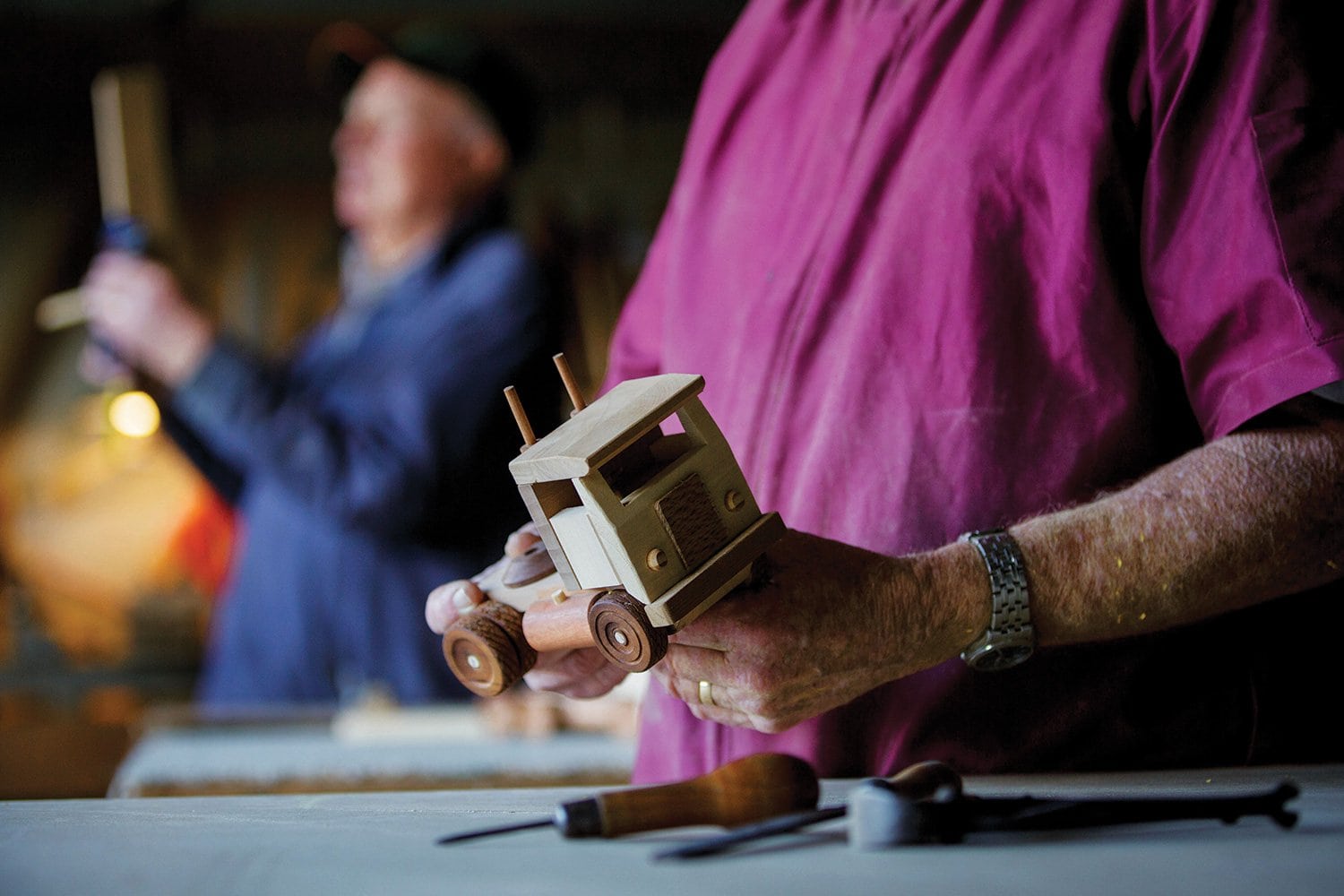
Our village is the perfect place for social butterflies and introverts alike. We understand that not everyone’s the same, and that’s okay. There’s no pressure to be anyone other than who you are – our village is a relaxed and accepting place where you can be yourself.
“You can be as isolated or involved as you want. It’s a village and you’ll always get a mix of people. By and large most people are social.”
Bev“You’re here just to enjoy yourself. That’s the fun of it! There is so much to do if you want to do it, and if you don’t, just stay home.”
John
Are some villages friendlier than others?
Here’s a brief summary of what our residents told us:
- Without a doubt, some villages are more friendly than others.
- Walk around different villages and get a feel for the ‘vibe’. You’ll instinctively know if you’re in the right place.
- Both the staff and residents play an important role in fostering social connections and making you feel welcome.
( . . They put their heart and soul into this complex, and make sure everyone is happy and joining in. There is even a get-together for men, they bring us together for a meeting once a week. No one is isolated . . . You live longer if you aren’t [isolated]”.
Precious McKenzie
A strong, happy community depends on support. A friendly community is one where residents actively assist each other, lending a helping hand whenever needed. Whether it’s a shoulder to cry on during tough times or simply sharing resources to help improve someone’s quality of life, the beauty of residents supporting each other creates a sense of closeness and belonging that is unparalleled.
What about “special” friendships…do they occur?
Yes, absolutely! It’s heartwarming to see romantic connections blossoming in places like ours. Witnessing one of our own find a special someone to share their life and experiences with fills our hearts with happiness. This reinforces the uplifting spirit of our lifestyle villages. We celebrate these beautiful love stories. But that is another blog!
Key takeaways
Remaining socially engaged not only reduces the risk of dementia and depression and contributes to physical well-being, but it also adds a sense of fulfilment to our lives. Our community facilitates many social events including happy hour, women’s only happy hour, men’s groups, guest entertainers, special dinners, and mystery tours. Our resident well-being group offers support and check-ins to those who prefer quieter social activities.
Overall, friendship in a retirement village is a precious and valuable aspect of life for older adults. It provides companionship, support, and a sense of belonging that can enhance the quality of life in the later years. So, whether you’re thinking about moving to a retirement village or already living in one, don’t underestimate the power of friendship in creating a fulfilling and enriching retirement experience.
QUOTES AND INSIGHTS SHARED ABOVE WERE OBTAINED FROM INTERVIEWS CONDUCTED WITH RESIDENTS OF PREMIER LIFESTYLE VILLAGES FOR A STUDY TITLED – ‘AN EXPLORATION OF RESIDENTS’ PERSPECTIVES OF WELL-BEING IN RELATION TO RETIREMENT VILLAGE LIVING’. NAMES HAVE BEEN WITHHELD OR CHANGED TO PROTECT THE IDENTITY OF THE PARTICIPANTS.
References
- Béland F., Zunzunegui M. V., Alvarado B., Otero A., & Del Ser T (2005). Trajectories of cognitive decline and social relations. The Journals of Gerontology, Series B: Psychological Sciences and Social Sciences, 60, P320–P330. doi: 10.1093/geronb/60.6.P320 [PubMed] [CrossRef] [Google Scholar]
- Berkman L. F. Glass T. Brissette I. Seeman T. E. (2000). From social integration to health: Durkheim in the new millennium. Social Science & Medicine (1982), 51, 843–857. doi:10.1016/S0277-9536(00)00065-4. [Google Scholar], [CrossrefPubMed], [WorldCat]
- Blieszner R., & Adams R. G (1992). Adult friendship. Newbury Park, CA: Sage. [Google Scholar]
- Blieszner, R., & Ogletree, A M., & Adams, R G (2019). Friendship in Later Life: A Research Agenda, Innov Aging. 2019 Jan; 3(1): igz005.
- Cohen S. Janicki-Deverts D. (2009). Can we improve our physical health by altering our social networks? Perspectives on Psychological Science, 4, 375–378. doi:10.1111/j.1745-6924.2009.01141.x. [Google Scholar], [CrossrefPubMed], [WorldCat]
- Holt-Lunstad J., Smith T. B., & Layton J. B (2010). Social relationships and mortality risk: A meta-analytic review. PLoS Medicine, 7, e1000316. doi: 10.1371/journal.pmed.1000316 [PMC free article] [PubMed] [CrossRef] [Google Scholar]
- Huxhold O., Miche M., & Schüz B (2014). Benefits of having friends in older ages: Differential effects of informal social activities on well-being in middle-aged and older adults. The Journals of Gerontology, Series B: Psychological Sciences and Social Sciences, 69, 366–375. doi: 10.1093/geronb/gbt029 [PubMed] [CrossRef] [Google Scholar]
- Pavot W. Diener E. (1993). Review of the satisfaction with life scale. Psychological Assessment, 5, 164–172. doi:10.10371040-3590.5.2.164.[Google Scholar], [Crossref], [WorldCat]
- Robert-Hughes, R. (2011). In W. Fox & A. Scott-Marshall (Eds.), The case for space: The size of England’s new homes. RIBA.
- Rowe J. W. Kahn R. L. (1997). Successful aging. The Gerontologist, 37, 433–440 10.1093/geront/37.4.433.[Google Scholar], [CrossrefPubMed], [WorldCat]
- Santini Z. I., Koyanagi A., Tyrovolas S., Mason C., & Haro J. M (2015). The association between social relationships and depression: A systematic review. Journal of Affective Disorders, 175, 53–65. doi: 10.1016/j.jad.2014.12.049 [PubMed] [CrossRef] [Google Scholar]
- ten Bruggencate T., Luijkx K. G., & Sturm J (2018). Social needs of older people: A systematic review. Ageing & Society, 38, 1745–1770. doi: 10.1017/S0144686X17000150 [CrossRef] [Google Scholar]
